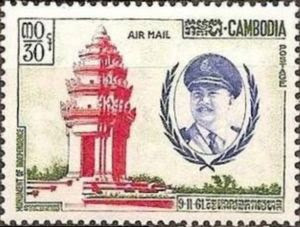Charles de Gaulle (1890-1970) was a prominent French military leader and statesman who played a significant role in the 20th-century history of France. He was born on November 22, 1890, in Lille, France, and passed away on November 09, 1970, in Colombey-les-Deux-Églises, France.
Key points about Charles de Gaulle:
Military Leader: De Gaulle served as a military officer and gained recognition for his leadership during World War I. He was wounded and captured by the Germans but made several daring escape attempts.
World War II: De Gaulle is most famous for his role in World War II. After the fall of France in 1940, he made a historic radio broadcast from London on June 18, 1940, calling on the French people to resist the German occupation. This marked the beginning of the Free French Forces, and de Gaulle became the leader of the Free French.
Free French and Liberation: Under de Gaulle's leadership, the Free French continued to fight alongside the Allies, and he played a pivotal role in the liberation of France in 1944. He led the French Provisional Government in the post-war period.
Founding of the Fifth Republic: De Gaulle was instrumental in the establishment of the French Fifth Republic in 1958, serving as its first President. He served two non-consecutive terms as President and implemented significant political and economic reforms.
Legacy: Charles de Gaulle is remembered as a national hero in France. He is known for his strong leadership, advocacy of a strong and independent France, and his contributions to French politics and the country's place in the world.
Charles de Gaulle's leadership and political career left an indelible mark on France's modern history, and he remains an iconic figure in French politics and international diplomacy.








